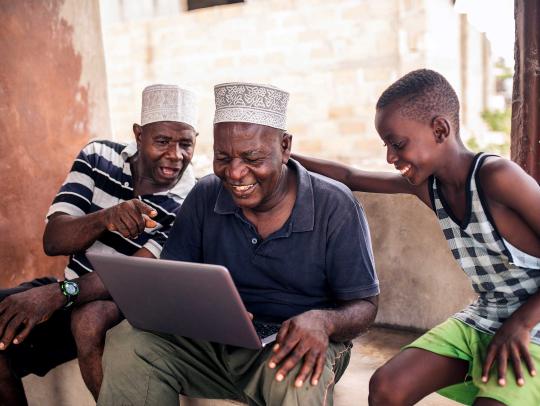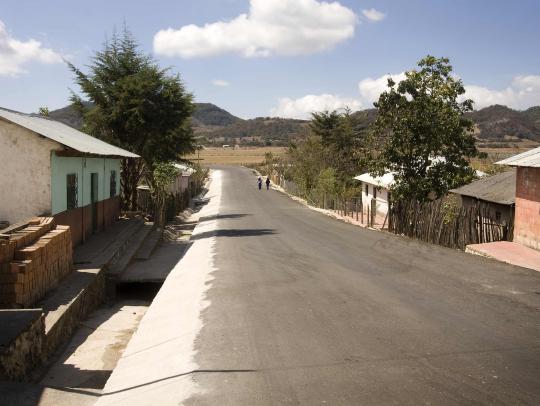SES Urges Africa to Embrace Satellite Technology to Accelerate Education Development Programs

Luxembourg, 3rd April 2014. SES (NYSE Euronext Paris and Luxembourg Stock Exchange: SESG) has called on Africa to begin satellite-powered e-school pilot projects to improve teacher competency on the continent.
The recommendation follows a roundtable discussion, attended by high level politicians and leaders from Africa and Europe, during the first day of the fifth EU-Africa Business Forum which took place in Brussels on Monday, March 31 and Tuesday, April 1. Christine Leurquin, VP, Institutional Relations, SES, chaired the panel, 'Creating partnerships to bring e-schools to rural Africa: Offering incubator-backed seed and early stage funding', which discussed how a lack of connectivity in Africa remains a key bottleneck to development.
The roundtable participants concluded that, in order to strengthen education in Africa, it was vital that e-learning connectivity equipment was made exempt from licensing, customs taxes and fees to boost education and jobs on the continent. African and European Heads of States were also urged to set up a new fast track Pan-African financial instrument to meet ICT initiatives for e-schools before 2020 to prioritize broadband infrastructure deployment for relevant and innovative e-services, starting with e-schools. Meanwhile, SES called for African Governments to identify major e-school pilot-projects (Incubators) in two to three African countries to improve teacher competency and to deploy them immediately thanks to satellite coverage.
SES and Teachers Media International (TMI) will also partner to launch an e-learning pilot project in Liberia through an incubator program for education, giving a concrete example of the e-learning schemes SES wants to lead.
"Access to low-cost satellite based services to schools will be inhibited, and in some cases prevented, unless national and regional groups of administrations apply policies and regulations that more effectively facilitate their use," said Leurquin. "There are new opportunities for ubiquitous deployment of low-cost satellite services to small businesses and consumers. However, disproportionate licensing fees combined with customs fees are unnecessarily thwarting access to communications."
The objective of e-schools is to introduce new and better learning forms based on ICT and connectivity to enrich content. With e-learning, students are able to acquire knowledge, learn how to process information and collaborate. It also imparts ICT skills to children in primary and secondary schools, as well as enhancing the quality of education by connecting teachers to training programs.
The fifth EU-Africa Business Forum aimed to engage the private sector in sustainable and inclusive growth. The roundtable chaired by SES was one of 12 which took place, with a variety of topics covered, including sustainable energy, agribusiness, infrastructure and SME financing.
For further information please contact:
Markus Payer
SES Communications
Tel: +352 710 725 500
[email protected]
About SES
SES is a world-leading satellite operator with a fleet of 56 geostationary satellites. The company provides satellite communications services to broadcasters, content and internet service providers, mobile and fixed network operators and business and governmental organisations worldwide.
SES stands for long-lasting business relationships, high-quality service and excellence in the broadcasting industry. The culturally diverse regional teams of SES are located around the globe and work closely with customers to meet their specific satellite bandwidth and service requirements.
SES (NYSE Euronext Paris and Luxembourg Stock Exchange: SESG) holds participations in Ciel in Canada and QuetzSat in Mexico, as well as a strategic participation in satellite infrastructure start-up O3b Networks.




